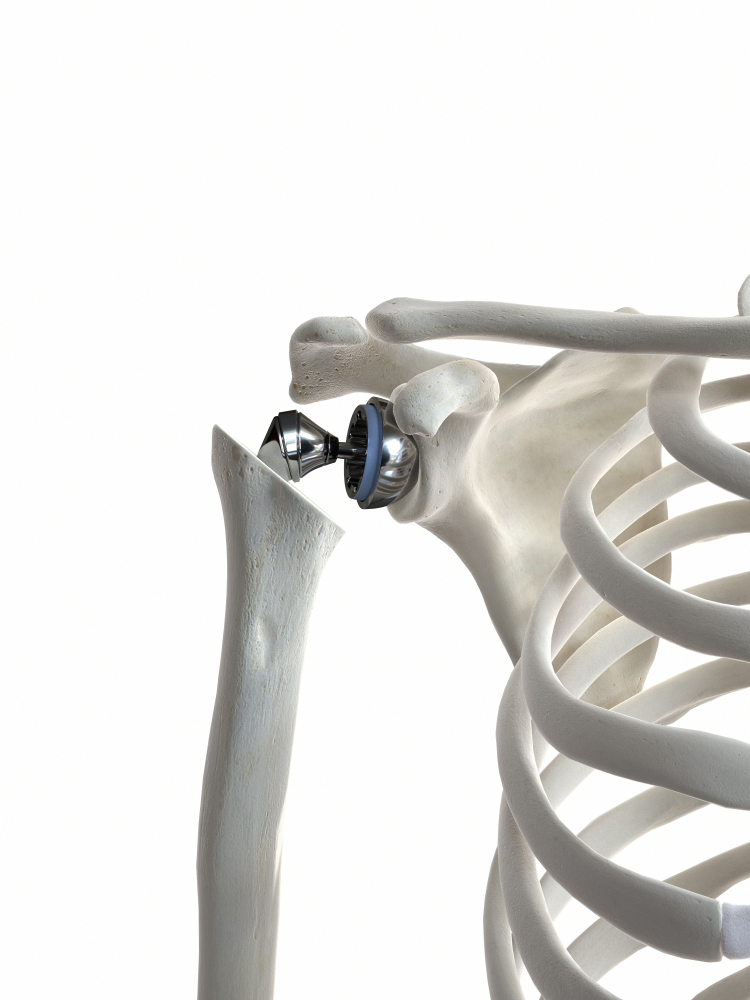Mark Kopec Now
Shoulder Replacement
Welcome to the Kopec Law Firm website, where we provide comprehensive information on shoulder replacement malpractice, including surgeries and the potential complications associated with them. If you have an injury from shoulder replacement surgery, then you may have a medical malpractice claim and need the Baltimore shoulder replacement lawyer.
Understanding Anatomy with the Baltimore Shoulder Replacement Lawyer
The shoulder is a complex joint that includes the humerus (upper arm bone), scapula (shoulder blade), and clavicle (collarbone). It’s the most mobile joint in the body, allowing for a wide range of motion.

Common Shoulder Problems and Symptoms
Shoulder pain is a frequent complaint, generally caused by:
- Rotator cuff tears: Damage to the tendons that connect the rotator cuff muscles to the shoulder joint.
- Arthritis: Degeneration of the cartilage that cushions the shoulder joint.
- Bursitis: Inflammation of the bursae, fluid-filled sacs that cushion the shoulder joint.
- Tendinitis: Inflammation of the tendons in the shoulder.
- Fractures: Breaks in the bones of the shoulder.
Symptoms of Shoulder Problems
- Pain, especially with movement
- Weakness
- Limited range of motion
- Stiffness
- Popping or clicking sounds in the shoulder
The Baltimore shoulder replacement lawyer can evaluate the condition you reported with.
Diagnosis and Treatment
Types of Medical Providers to See
- Orthopedic Surgeon: A doctor who specializes in treating conditions of the musculoskeletal system.
- Physical therapist: A healthcare professional who can teach exercises to improve shoulder strength and also flexibility.
Diagnostic Tests
- X-rays: To identify fractures, arthritis, or bone spurs.
- MRI: To visualize soft tissues like tendons, ligaments, and muscles.
- CT Scan: Provides detailed images of the shoulder joint.
Types of Shoulder Conditions
- Rotator cuff tears: Can be partial or also full-thickness tears.
- Osteoarthritis: A degenerative joint disease that causes cartilage breakdown.
- Rheumatoid arthritis: An autoimmune disease that causes inflammation in the joints.
- Frozen shoulder: A condition that causes stiffness and pain in the shoulder joint.
Types of Treatments
- Physical therapy: To improve strength, flexibility, and also range of motion.
- Medications: Pain relievers and anti-inflammatory drugs.
- Corticosteroid injections: To reduce inflammation.
- Surgery: For severe conditions that don’t respond to conservative treatment.
Surgery
Shoulder replacement surgery, also known as shoulder arthroplasty, is a procedure performed to relieve pain and restore function in a damaged or diseased shoulder joint. The surgery involves replacing the damaged parts of the shoulder joint with artificial components, typically made of metal and plastic.
During the procedure, the surgeon makes an incision to access the shoulder joint. The damaged bone and cartilage are then removed, and the artificial components are securely implanted. The surgeon aligns and attaches these components for joint function. Once the procedure is complete, the incision is closed, and the patient begins the recovery process.
While shoulder replacement surgeries can provide significant relief and improved mobility for patients, like any surgical procedure, they carry certain risks and potential complications. Negligence or errors during the surgery can lead to adverse outcomes.
Complications that May Arise from Shoulder Replacement Surgeries
- Infection: There is a risk of developing an infection at the surgical site, which may require additional treatment, such as antibiotics or, in severe cases, revision surgery.
- Implant Failure: The artificial components used in shoulder replacement surgeries can sometimes fail, leading to pain, instability, or limited range of motion. This may necessitate revision surgery to replace or repair the implants.
- Nerve Damage or Blood Vessel Damage: During the surgery, nearby nerves or blood vessels may be inadvertently damaged, resulting in numbness, weakness, or circulation problems in the affected arm.
- Instability or Dislocation: Improper alignment or inadequate fixation of the artificial components can cause shoulder instability or dislocation, leading to pain and functional limitations.
- Adverse Reactions: Some patients may experience allergic reactions or sensitivity to the materials used in the implants, resulting in inflammation or discomfort
Medical Malpractice Claims Related to Shoulder Replacement Surgery
Medical malpractice occurs when a healthcare professional fails to provide care that meets the standard of care, resulting in harm to the patient. Potential medical malpractice claims related to shoulder replacement surgery may include:
- Misdiagnosis of a shoulder condition: Delaying proper treatment can lead to worsening of the condition.
- Surgical Error: Errors during surgery can cause nerve damage, infection, or implant failure.
- Failure to obtain informed consent: Patients must be fully informed of the risks and benefits of surgery before giving consent.
- Failure to monitor for complications: Post-operative complications like infection or blood clots must be promptly identified and also treated.
Next Step: Call the Baltimore Shoulder Replacement Lawyer
If you suspect that your shoulder replacement surgery has resulted in complications due to medical malpractice, then it is crucial to consult with an experienced attorney specializing in medical malpractice claims. At the Kopec Law Firm, we will evaluate the details of your case, gather necessary evidence, and then guide you through the legal process.
Visit the free consultation page or video. Then contact the Kopec Law Firm at 800-604-0704 to speak directly with Attorney Mark Kopec. He is a top-rated Baltimore medical malpractice lawyer. The Kopec Law Firm is in Baltimore and pursues cases throughout Maryland and Washington, D.C.





